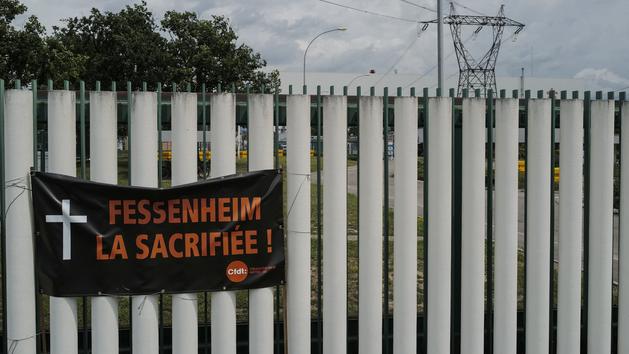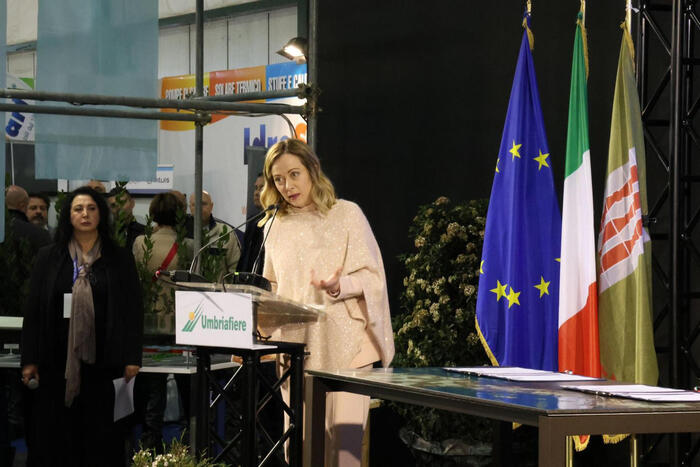Will the closure of the dean of nuclear power plants empty the Fessenheim portfolio? The day after the final disconnection of the installation, now disconnected from the electricity network of France, many questions remain as for the future of the site, still very uncertain. Behind, a second part of the questions, more discreet, also arises: that of the effect of this closure on the finances of the commune, of the intermunicipality to which it belongs, of the department and even of the region.
Read also: Nuclear power plant: fire extinction in Fessenheim
Because a nuclear power plant is a huge windfall for local communities. In addition to the direct and indirect jobs it generates, the tax benefits are exceptionally high, for municipalities that are often small, poor and isolated. Business property tax, property tax on built properties, business value-added tax, etc. In addition to these traditional levies on economic activities, others specific to nuclear power, such as taxes on pylons and electrical transformers, or a flat-rate tax on network companies, called IFER-Nucléaire. The amount of the latter is calculated " as a function of the power installed in each installation ": the greater this is, the higher the jackpot will be, logically.
Revenue and expenses of Fessenheim compared to others of the same stratum Bercy, Le Figaro
Result: " the commune of Fessenheim is clearly the richest per capita of the department ", estimates the lecturer in geopolitics and geography Teva Meyer. And this, almost without eliciting state aid. An observation also underlined by data from the Observatory of local finance and public management: Fessenheim is a UFO, with revenues and expenses much higher than the municipalities of its stratum. For its part, EDF figures the contribution of its power plant to local taxation " up to 48 million euros, including 14 million for local authorities ". Of this 13.3 million euros in 2019, 6.3 million went to the Public Establishment for Inter-municipal Cooperation (EPCI) to which Fessenheim is attached, 0.5 million directly to the municipality, 4.7 million to the departmental council and 1.7 million in the region, according to a report by the Court of Auditors.
Comparison of some tax revenues between Fessenheim and the municipalities of its strata Bercy, Le Figaro
" There will be repercussions, necessarily "
The final closure of the power plant will therefore have a disastrous effect on the accounts of local authorities, from the municipality to the region: "as soon as operations are completed, EDF's tax contribution for the Fessenheim installations should be divided by 10 between 2019 and 2022 ”, advanced the company last year. These millions of euros are likely to run out, even though the municipality will have to continue its investments to attract new activities and new inhabitants.
In addition, to these fiscal losses will be added other economic ones that economic players in the field will feel when the personnel of the power station gradually leaves the field. “ Many workers at the plant went to lunch in restaurants, slept on site, in hotels, in lodgings or in accommodation. There will be repercussions, of course, ”sighs the mayor (without label) of Fessenheim, Claude Brender. " Part of the payroll will no longer be reinjected into the commercial and craft fabric of the territory, " regrets the elected official, who adds that these capital outflows will increase over the years, as the number of EDF and activity related to the plant will evaporate.
Read also: Fessenheim closed, will France import carbon-based electricity from Germany?
The State has promised to compensate for certain losses: a compensation fund supplied by the revenues of IFER of the municipalities hosting a nuclear or thermal power plant has been set up to compensate 100% of the losses in taxation, IFER and CET for three years . The compensation will then be declining over seven years. In other words, Fessenheim will receive aid for the next decade, while it finds other resources to finance its infrastructure and maintain its dynamism.
In addition, significant costs will have to be borne by the territory. Of the 6.3 million euros for the EPCI, 3.4 million euros remained in the territory and 2.9 million went to feed the National Individual Guarantee Fund for Resources (FNGIR), which pays money communities which benefited from the abolition of the professional tax to those which lost money in the reform, explains the mayor. However, contributions to this fund are fixed. Who will take charge of this part, which will remain unchanged, once the tax benefits of the power plant have disappeared? " Legally, Fessenheim must continue to give several million, when it will no longer have the means before, " says Teva Meyer. “ The distribution of losses is not decided at the community level. The wealthier municipalities, which benefited more from the power plant, will probably have to make an additional effort, ”describes Claude Brender. The discussions promise to be ignited within the EPCI. The Court of Auditors, it advances a possible increase in local taxation to offset these tax losses. At the risk of making the municipality less attractive in the future?
"No way to go back "
For its part, the town hall has " anticipated ", seeking to attract new arrivals to compensate for the first departures. “ About twenty houses have been on the market for a year, they have all found takers. There is no real estate depression, Fessenheim remains attractive thanks to its services and infrastructures ”, welcomes the council member, who sees it as a blessing making the city more resilient. The city has also stopped borrowing for ten years to limit its debt as much as possible.
In the longer term, everything remains to be done: “ the State has mobilized all its resources to close Fessenheim, without favoring a project or studying in parallel the follow-up to be given to this site. Today, we are asked to provide solutions, but it was not we who decided to close the plant! Politicians preferred the symbol of the closure of the plant, without going any further, ”accuses the mayor. The occupant of the town hall also fears that the executive will take advantage of the ten years of the compensation fund to put the subject of the future of Fessenheim under the carpet, at least until the next presidential elections in 2022.
However, he refuses to wait: “ we still have big investments to make. We have just accelerated our spending to make the town more attractive, as long as we have the money to do it. We have to remain attractive: it is out of the question to go back or to close anything ”, he pings.





